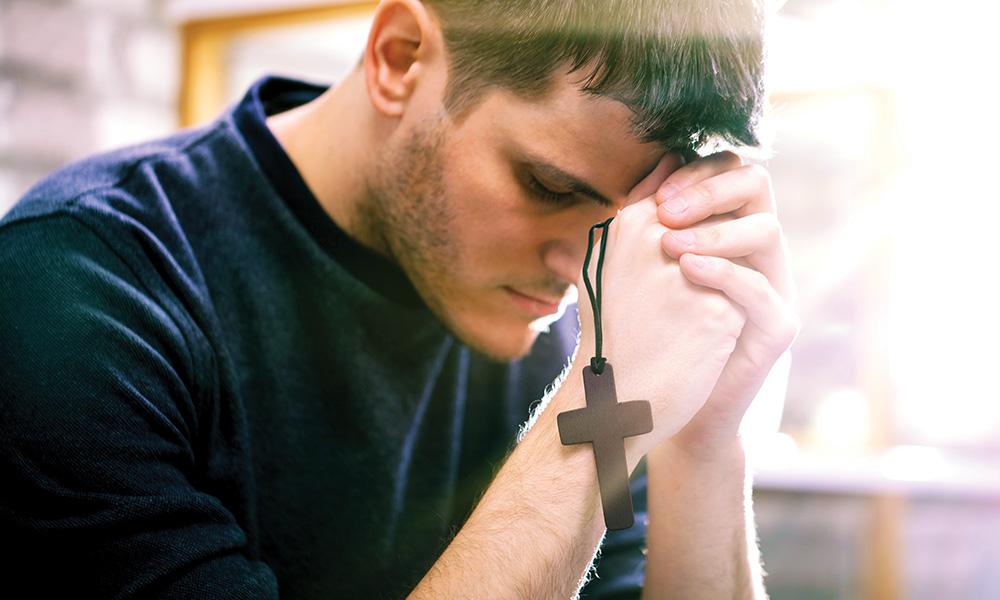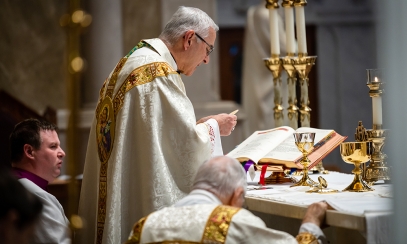
A religious vocation is one career option among many
What do you want to do when you grow up? “I think I want to be a teacher when I grow up.” “I think I want to be a doctor.” “You would make a good lawyer.” “I want to play football.” “I believe I want to be a priest.”
What do you want to do when you grow up? “I think I want to be a teacher when I grow up.” “I think I want to be a doctor.” “You would make a good lawyer.” “I want to play football.” “I believe I want to be a priest.”
All parents know that when it comes to raising children, one of the most important tasks is helping them to become holy and productive members of society. This is accomplished through providing for a sound Catholic formation, a solid education in human sciences, and the good example that parents give to their children of service for God and to neighbor.
However, the day inevitably comes when children must embark on the path of the rest of their lives, outside of the security of their family, and within the midst of the world. That is why parents have a crucial role in assisting their children in discovering the best place for them to insert themselves in society.
As children grow and mature, they, as well as their parents, find themselves hearing or saying any of the above quotes, or other similar ones. The future becomes one massive fresh canvas of opportunities, and, typically, all of the possibilities for the child’s life are laid out before them in equal measure.
However, here is where we must make an important distinction. Every person has a vocation, but not everyone is meant to have a career.
It might be helpful to clarify here that every person has the same “vocation” — to get to Heaven. There is not a person alive who has not been called by God to join Him one day in His Kingdom. This is the eternal destiny willed by God for everyone, and all are called to cooperate with Him in this life in order to achieve eternal happiness with Him in the next life.
Beyond the vocation to Heaven lies another vocation. This other vocation clarifies the call to holiness through emulating the self-giving, life-giving, and love-giving Passion of our Lord.
Think of it this way: marriage is not a career — it is a lifelong commitment of love and fidelity where husband and wife lay down their lives for each other to help each other in this life every way and, ultimately, to get to Heaven.
In the same way, the priesthood is a vocation, not a career. It is a call from God through which a man lays down his life for the people of God entrusted to him by his spouse, the Church. The priest is called to lead the people under his pastoral care to Heaven.
The consecrated life is a vocation, through which a man or woman lays down his or her life for the brothers or sisters in their community, building up their common home so that it might become an image of Heaven on earth. The consecrated religious also lay down their lives in active or contemplative service to the wider community of the faithful to assist them in religious or even secular ways, which is known as their apostolate.
Some are called to consecrated virginity, or celibacy for the sake of the Kingdom of Heaven in other ways. They make a total gift of themselves to God and to the world, seeking to sanctify the world through the tasks of their daily lives.
Another example which helps us to appreciate the distinction between vocation and career is this: in addition to the vocation to marriage, most people who are married also have careers. Their career is the means through which they provide for the needs of their families and promote the well-being of society.
This is not to say that God does not invite or lead people to particular professions. On the contrary, it is true that God may lead a person to a certain career. It is also true that God can, and certainly wants to, use that person as an instrument in their profession for the earthly good of mankind. Additionally, and equally important, God wants to use that person to be His witness to those with and for whom the person works. All human labor — every career, every profession, every craft — can and should be sanctifying. The difference, however, is that a person can switch jobs, or retire from their careers, but a vocation involves making a lifelong commitment — promises or vows which are meant to endure as long as the person lives.
With this understanding, therefore, we can be more precise, and thus more helpful, in guiding our young people to find their place in the world. Perhaps we shouldn’t ask, “What do you want to do when you grow up?” Instead, we could ask, “Who does God want you to be when you grow up?”
Drawing attention to who God wants us to be alerts young people to the fact that God has a plan for them, and they should find it and follow it. It also clarifies, more accurately, the fresh canvas of their lives.
First, every young person should come to know and live this answer: “God wants me to be a saint!” This is the universal vocation.
Second, every young person should be guided in discerning with the Lord what vocation lies beyond their call to holiness and given the freedom to say yes to God’s initiative.
Third, if applicable to this vocation, every young person should be given the tools he or she needs to find their proper secular labor and to see that labor as sanctifying for themselves and beneficial for their fellow man.
Every person is unique, loved uniquely into existence by God, and called by God to take their place in His beautiful design. May everyone find their unique vocation and be who God wants them to be for the world!
Father Kevin Bazzel currently serves the Diocese of Birmingham as Vicar General and Moderator of the Curia. He previously served six years of service in the Congregation for the Clergy in the Holy See. During his time in Rome, he also served as an adjunct spiritual director at the Pontifical North American College.



